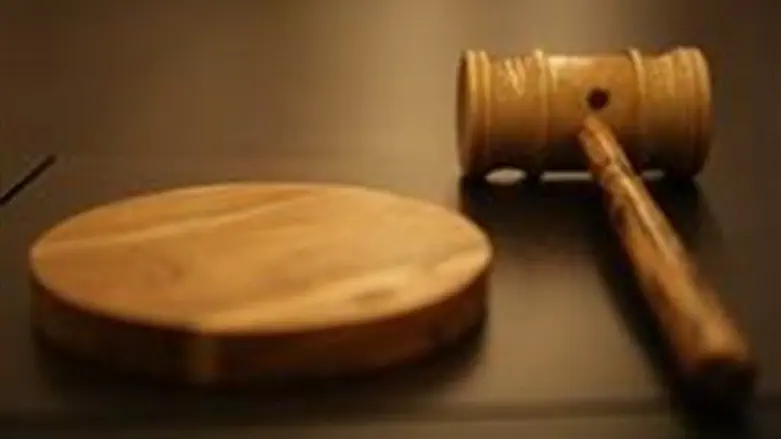
The Jerusalem Magistrate's Court on Thursday rejected a police request to distance an arrested Jewish minor from Jerusalem, during Pope Francis's upcoming visit next Sunday and Monday. The youth studies at a yeshiva in Jerusalem's Old City.
During the court trial, the Honenu legal aid organization reports that the police representative admitted the GOC (General Officer Commanding) Homefront Command refused to give an administrative order against the youth, apparently even having seen intelligence information presented about the youth.
Police on Wednesday put several "right wing activists" under house arrest through similar restraining orders. The administrative orders are a relic of the British Mandate-era legal system, allowing the detention or distancing of individuals without any charges or due process, over suspicion they may harm public order.
Attorney Itamar Ben-Gvir, representing the youth for Honenu, argued that the police were treating the court as a default to the IDF, and that the request showed contempt for the court.
At the conclusion of the proceedings, Judge Yaron Mientkavich ruled that while there was a basis for police concerns that the youth might breach the public order during the pope's visit, the court did not have the authority to give such administrative orders. The judge told police there were ways to distance the youth, but that the request as submitted was not one of them.
Mientkavich ordered the minor to be unconditionally released, without any guarantor's signature required.
"The police have to internalize the message of the court," stated Ben-Gvir. "In recent days we are witness to many being arrested over merely planning to protest against the pope."
Ben-Gvir criticized the police, saying "the time has arrived to teach the police about freedom of expression and democracy. The Jewish people are allowed to demonstrate against the pope."
Another Jewish youth was not as lucky. The youth was arrested on suspicions of having distributed fliers on Wednesday at Mount Zion (where the David's Tomb Compound is located) against the pope's visit. The court ruled that he be distanced for four days from Jerusalem's Old City.
The pope's visit - coming to take the tomb of King David?
The protest around the pope's visit, aside from reports that he is beginning the trip in Palestinian Authority (PA) controlled Bethlehem as a message "recognizing Palestine" and "opposing the occupation," revolves around control of the David's Tomb Compound.
Numerous government officials - including Foreign Minister Avigdor Liberman and Israel's Sephardic Chief Rabbi - have denied control will be transferred to the Vatican.
However, Rabbi Avraham Goldstein, the Rosh Yeshiva (dean) of the Diaspora Yeshiva located in the Compound, revealed what he said were much more underhand plans than a straight-forward hand-over.
"According to the information we have...the state will be allowing the Church to conduct Mass on the upper floor; then according to Jewish law (halakha) Jews will not be able to pray downstairs (either), since on the upper floor there will be idol worship," the rabbi said.
Jewish law forbids benefiting from anything - including a structure or shelter - used for idol-worship. Catholic effigies and other rituals fall under the Jewish legal definition of idol worship, meaning that the establishment of a permanent Catholic place of prayer in the Compound would effectively prevent Jews from conducting their own services in the entire building.
A Catholic official confirmed the Vatican's intentions to put those very plans into effect, telling the Salt Lake Tribune on Tuesday that the Vatican wants "to hold two hours of [Christian] prayer every day in the early morning before visitors start to visit it."